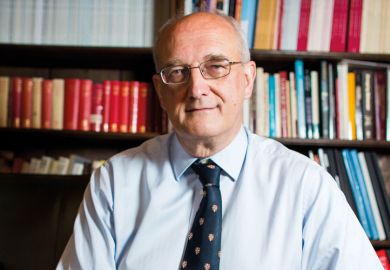The University of Cambridge would be forced to open science parks on the Continent instead of England if the UK leaves the European Union, its vice-chancellor has said.
Sir Leszek Borysiewicz said that being cut off from European funding and collaboration would see British research reduced to “irrelevance” in many fields and that it was “complete idiocy” to pretend otherwise.
Speaking at a debate on research and the EU held at Downing College, Cambridge, Sir Leszek said that the cluster of high-tech companies around the city was the most successful in Europe and that this reflected the “uniqueness” of the way in which the region’s universities engaged with the private sector.
But he questioned whether this boom could be maintained if the UK left the EU. Only companies on the Continent would be able to exploit research discoveries that were EU-funded, Sir Leszek said, because “he who pays the piper calls the tune”.
“How successful do you think [this cluster] is going to be when some of those [universities] are going to have to think, Cambridge University included, that actually we now need to start creating science parks on the Continent, rather than doing it here, so that we can keep those jobs and opportunities for people here in Britain?” Sir Leszek said. “That is serious, it’s not a threat; it’s the reality of the world as I see it.”
Sir Leszek told the debate that, while European research funding was important, the opportunities for cross-cultural interdisciplinary collaborations that it offered were equally valuable.
Challenges that spanned borders needed solutions that did the same, he said.
“The idea of the ‘Little England’ sitting somewhere off the shores of Europe is frankly a fallacy and complete idiocy for those who actually wish to promote that type of view,” he said.
Pan-European collaboration was also the only way to create excellent research, according to the vice-chancellor, who said that it was wrong to pretend that the UK possessed all the skills required to make major breakthroughs by itself.
“We gain added value from collaboration and engagement and without that we become an irrelevance in so many fields,” he said.
POSTSCRIPT:
Print headline: Science parks to leave UK in Brexit, says v-c
Register to continue
Why register?
- Registration is free and only takes a moment
- Once registered, you can read 3 articles a month
- Sign up for our newsletter
Subscribe
Or subscribe for unlimited access to:
- Unlimited access to news, views, insights & reviews
- Digital editions
- Digital access to THE’s university and college rankings analysis
Already registered or a current subscriber?







